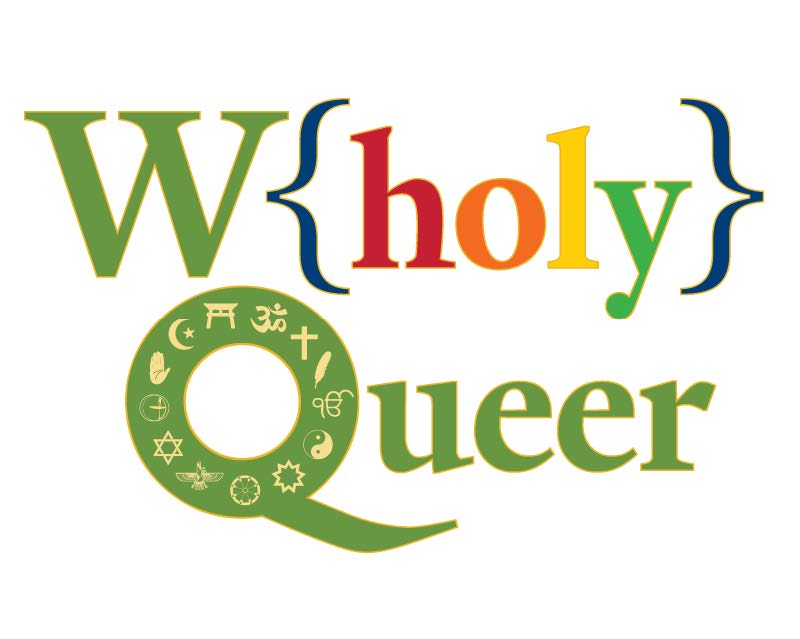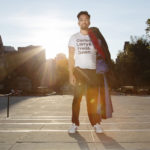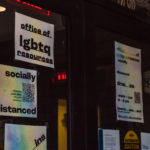
Courtesy of Jenny Peek
Each month, the Yale University Chaplain’s Office, the Office of LGBTQ Resources and the Joseph Slifka Center for Jewish Life at Yale hosts {W}holy Queer, which are meetings where undergraduate, graduate and professional students at Yale gather to discuss the intersection between their queer and religious identities.
The meetings take place over Zoom and are discussion based. Before the COVID-19 pandemic, meetings typically included a discussion topic, but individuals also shared meals and a craft during the event — past activities included baking rainbow challah, making terrariums and weaving friendship bracelets. Last month, group leaders distributed model magic clay to registered attendees, so they could sculpt creatures during the meeting and retain the tactile element of the sessions.
“Too often, LGBTQIA people are made to feel as if they need to choose between their religious/spiritual identity and their sexuality or gender identity,” wrote Rev. Jenny Peek DIV ’17, an associate University Chaplain who coleads the group with Rabbi Isaama Goldstein-Stoll and a team of graduate and undergraduate students. “So many of us live at the intersections of identities, communities and cultures. There is room for all people to be wholly themselves, and many LGBTQIA+ people long for spaces and communities where they can be wholly queer.”
According to Peek, there are between 20 and 30 students in attendance each meeting, which is a similar level of attendance to before the pandemic. Attendees include a combination of first-time, occasional and regular visitors. The group’s email list includes over 100 students, and the email list is kept confidential to protect students questioning their sexual or religious identities.
When he was a student at Yale Divinity School, Angel Collie DIV ’14 founded the group alongside Associate University Chaplain Maytal Saltiel and Seonjoon Young ’02, who worked for the Chaplain’s Office as an undergraduate. Although Collie has since left Yale to pursue a Doctor of Ministry at Duke University, he said the group remains important to him as a source of spiritual healing, due to the backlash against his sexuality that he faced in his southern Baptist church.
“I know now that God created me, all of me, and when I embrace all of that I can be whole,” Collie wrote to the News in an email. “That might explain the name as well … the play on Whole and Holy was intentional.”
Peek first encountered {W}holy Queer as a student at Yale Divinity School. She said she began facilitating the group in 2017, when she joined the Chaplain’s Office. Peek, who is a Presbyterian minister, noted the diverse array of religions attendees represent.
“How often does one get to have dinner with 30 other queer and questioning students who are Hindu, Buddhist, Jewish, Christian, Muslim, Wicca and exploring?” Peek said.
The inclusion of a wide range of religious identities characterized the group from the start: Collie is a Christian, Saltiel is Jewish and Young is a Buddhist. According to Collie, this diversity is important because spiritual violence exists within a variety of creeds.
Alex Josowitz GRD ’18 ’19 ’22 told the News that he has learned a lot from the myriad of identities he’s encountered at {W}holy Queer meetings. Josowitz is a member of the leadership team for {W}holy Queer. He and other student leaders help plan the monthly sessions.
“I feel like our space would likely be labeled as a ‘safe space’ by certain groups in a derogatory way,” Josowitz said. “To me, it’s not really a ‘safe space’ but a space for students to discuss pretty difficult issues and concepts, grapple with identity, but also be respectful of each other.”
According to Josowitz, spaces like {W}holy Queer encompass the diverity within Yale students and on campus and can prevent feelings of isolation when aspects of an individual’s identity seem to contradict one another.
Another student leader, Leo Roberts ’23, echoed Josowitz and noted the uniqueness of holding space for both religious and sexual identities.
“Religion and queerness are often seen as mutually exclusive, so to have a room full of people who share these two identities and understand that they intersect in beautiful ways is quite magical,” Roberts wrote in an email to the News. “Most religious spaces assume cis-straight patrons, and most queer spaces don’t explicitly mention any sort of religious identity, which is why places like W{holy} Queer are so important.”
The Office of LGBTQ Resources is located at 135 Prospect St.









